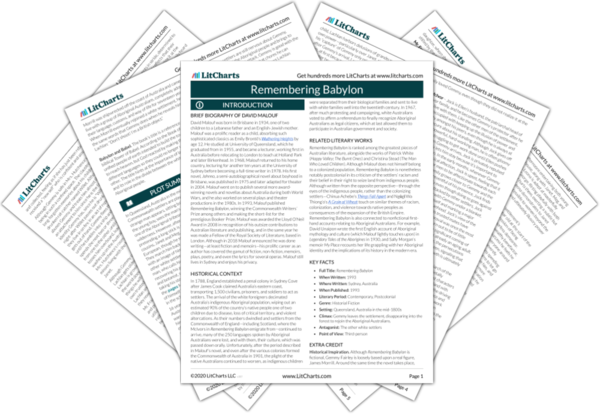The settlers’ general fear of Gemmy and his association with the Aboriginal Australians frankly exposes their racism. Ironically, their consideration of whether Gemmy could have somehow lost his whiteness exposes their belief in a categorical distinction between white and black people while also revealing the absurdity of it. There seems to be no way to quantify or define what whiteness even is, since it apparently has little to do with skin color, and yet the settlers are convinced that some such quality exists.
